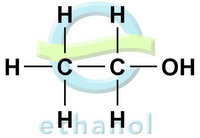Politicians to Drive on Straw-Based Bioethanol at the Climate Change Conference
SEE ALSO: Ethanol Conversion Untruths
COPENHAGEN, July 14 -- When world political leaders are being transported all over Copenhagen during the United Nations Climate Change Conference in December 2009, environmentally friendly fuel will power their vehicles. Members of the Partnership for Biofuels, a co-operation between Danisco's biotech division Genencor, Inbicon, Novozymes and Statoil, have joined forces to deliver 2nd generation bioethanol for 40 of the cars that the Danish Foreign Ministry will provide during the conference. The cars will be supplied by Volvo.
"As host nation, Denmark is working to create a green and climate friendly Conference in December," says Svend Olling, Head of Department in the Ministry of Foreign Affairs. "We also plan to showcase to the conference delegates some of the new technologies that could contribute to solving the climate challenge. Second-generation bioethanol -- ethanol made from agricultural waste -- is one example of such a new technology. The Ministry of Foreign Affairs is therefore happy that, in co-operation with the Partnership for Biofuels, it has succeeded in reserving some of the first litres of 2nd generation bioethanol produced in Denmark for the transportation of important guests within Copenhagen during the Conference."
Inbicon, the DONG Energy subsidiary that is commercializing its technology for converting straw into bioethanol, will produce the new fuel at its pilot plant in Denmark. With this technology, a car's emission of CO2 is reduced by 85% compared to that from conventional petrol. The fuel blend used at the Climate Change Conference will be E85, which is composed of 85% bioethanol and 15% petrol.
The Partnership's capabilities to produce 2nd generation bioethanol represents considerable potential in the climate debate, as conventional fuel such as petrol can be replaced. Second-generation bioethanol can be produced from residual products from forestry, agriculture and other industries.
Novozymes and Danisco will supply the enzymes for ethanol production and Statoil will provide the distribution facilities.
The development of the 2nd generation bioethanol technology represents an important business potential through the export of technological solutions and knowledge within the development and use of enzymes.
Facts about Danisco/Genencor
Genencor, a division of Danisco A/S, is a world leader in industrial biotechnology and a pioneer in enzyme innovation. Genencor improves process and product performance for a spectrum of industries, including biofuels.
Find out more at www.danisco.com and www.genencor.com. Facts about Inbicon
Inbicon A/S, a subsidiary of DONG Energy, was formed to commercialize its 2nd generation technology for converting soft cellulosic biomass like wheat straw into ethanol. Since 2003 Inbicon has been developing its technology at pilot plants in Denmark. Inbicon is constructing a demonstration model of its Inbicon Biomass Refinery in Kalundborg. The plant will convert wheat straw into ethanol and other green products; it will open in December 2009 in time for the Copenhagen Climate Summit. In conjunction with the Demark developments Inbicon is also working with existing grain-based ethanol plants in the United States to add a 20 million gallon per year biomass stream from corn stover or wheat straw that can also offset fossil fuel use 100% in the entire operation. Find out more at www.inbicon.com.
Facts about Novozymes
Novozymes is the world leader in bioinnovation. Together with customers across a broad array of industries we create tomorrow's industrial biosolutions, improving our customers' business and the use of our planet's resources. With over 700 products used in 130 countries, Novozymes' bioinnovations improve industrial performance and safeguard the world's resources by offering superior and sustainable solutions for tomorrow's ever-changing marketplace.
Facts about Statoil
Statoil supplies around one fifth of Denmark's total oil consumption and operates more than 300 petrol stations in Denmark, including approx. one fifth automat stations under the 1-2-3 brand. The company's Kalundborg refinery refines oil products, which are either exported or sold in Denmark for use as, for example, transportation fuel or heating oil for private home and commercial property.
Facts about Partnership for Biofuels
Partnership for Biofuels aims to develop the framework conditions for Danish technology in order to produce 2nd generation biofuels. The partnership consists of Novozymes A/S, Inbicon A/S, Danisco A/S, Biogasol, Statoil A/S, Aalborg Universitet, Agrotech, Solum Gruppen and Danish Agricultural Council. The work is being followed by EUDP and The Danish Environmental Protection Agency.



